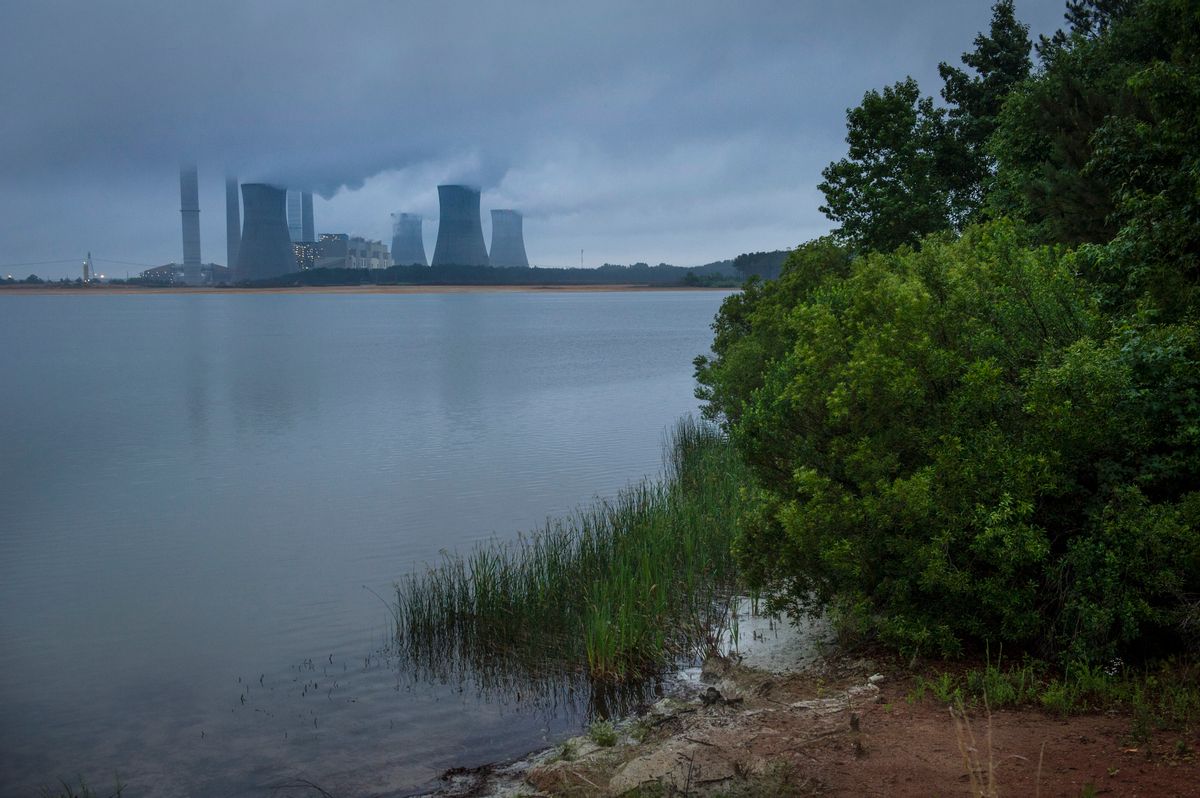Ten corporations and state-owned entities are responsible for over 36 percent of global fossil fuels emissions since 1988, according to a new study published by the Carbon Disclosure Project.
Among the top ten polluters is British-Dutch owned-Shell, as well as the Exxon Mobil Corporation, whose former CEO, Rex Tillerson, currently serves as the U.S. Secretary of State. The governments of China, Saudi Arabia, Russia, Iran, India, and Mexico also own entities, which make the top ten list.
The study, which also shows that 100 companies are responsible for over 70 percent of global emissions, highlights the critical role of corporations and powerful state actors not only perpetuating environmental damage, but also in combatting climate change.
If fossil fuels continue to be extracted at the same rate over the next 20 years, the world could see a 4°C rise in global temperatures by the end of the century, leading to mass extinctions and widespread starvation.
Here are the top ten corporate and state-entity polluters:
1. China (Coal): 14.3 percent
China's state-led coal production has tripled to almost 4 billion tons since 2000, contributing to around half of all global emissions.
2. Saudi Arabian Oil Company (Aramco): 4.5 percent
Saudi Arabia's state-owned Aramco has the world's largest crude oil reserves and the highest daily production output of any company in the world.
3. Gazprom OAO (Russian): 3.9 percent
Russian-owned Gazprom OAO has been the target of environmental protests for its Arctic drilling.
4. National Iranian Oil Co: 2.3 percent
Iran's state-owned natural gas company has had unilateral control over the country's oil reserves since 1948.
5. ExxonMobil Corp: 2.0 percent
ExxonMobil is the world's seventh largest corporation, an offspring of John D. Rockerfeller's Standard Oil Company. ExxonMobil has lobbied against climate change action in the U.S. Congress.
6. Coal India: 1.9 percent
State-owned Coal India is the largest producer of coal in the world.
7. Petroleos Mexicanos (Pemex): 1.9 percent
In 2009, Mexican state-owned Pemex was Latin America's second largest corporation.
8. Russia (Coal): 1.9 percent
Russia saw a 70-percent increase in coal production since the late 1990s.
9. Royal Dutch Shell PLC (Shell): 1.7 percent
Shell is the seventh largest corporation in the world, and involved in every area of the coal and gas production chain. The British-Dutch owned company has been implicated major oil spills in Nigeria.
10. China National Petroleum Corp (CNPC): 1.6 percent
The state-owned oil and gas corporation is the largest integrated energy company in China.
In the foreword to the report, Pedro Faria, CDP's Technical Director, said the U.S. withdrawal from the Paris climate agreement was "an unfortunate decision," and called on oil and gas firms to step up their commitment to the transition to a low-carbon economy and the reduction of greenhouse gas emissions.
"Fossil fuel companies are also going to have to demonstrate leadership as part of this transition," he writes. "They owe it to the millions of clients they serve that are already feeling the effects of climate change, and to the many millions more that require energy for the comfort of their daily lives but are looking for alternatives to their products."
Click here for the full report.




Shares